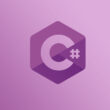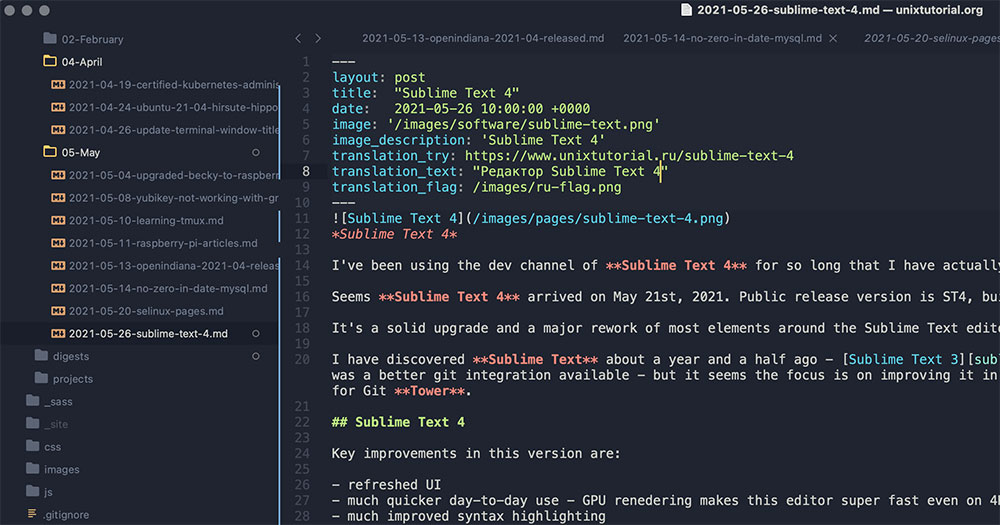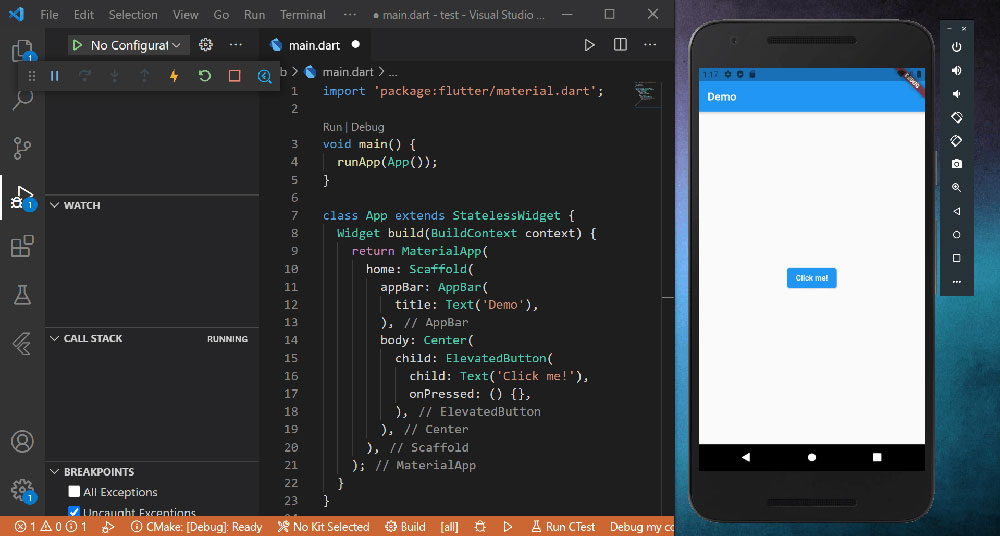The 19 Top Ruby Alternatives to Consider Using

Picture a craftsman without their tools. That’s a coder without their chosen language. But what if your trusty hammer is no longer hitting the nail right? Welcome to the quest for Ruby alternatives.
Imagine: You’re in the throes of creation, your website taking shape beneath your fingertips. Suddenly, Ruby, the once go-to artisan’s gem, doesn’t cut it. Fear not.
There’s a world brimming with dynamic syntaxes and robust frameworks just waiting to be deciphered.
Here’s the scoop: By the time you’re done here, you’ll unlock a treasure trove of possibilities. Each paragraph, a stepping stone, leading to a different programming paradigm, a fresh approach, a newfound ally in web development.
Experience the adrenaline as we unveil languages like Python, the charm of JavaScript, the precision of Java, and the speedster known as Go.
Dive headfirst into this adventure where each scripting language plays hero in its own right. Your digital canvas awaits you, ready for that stroke of genius.
Ruby alternatives
| Language | Paradigm | Typing Discipline | Main Uses | Special Features |
|---|---|---|---|---|
| Python | Multi-paradigm: OOP, procedural, functional | Dynamic, duck | Web development, scripting, data analysis, AI/ML | Readable syntax, extensive librairies |
| JavaScript | Multi-paradigm: event-driven, functional, OOP | Dynamic, duck | Web development (frontend and backend) | Ubiquitous on the web, Node.js for server-side scripting |
| Golang | Procedural, concurrent | Static with type inference | Systems, networking, cloud services | Simplicity, built-in concurrency, fast compilation |
| Rust | Multi-paradigm: functional, imperative, concurrent | Static with type inference | Systems programming, web assembly | Memory safety without garbage collection, zero-cost abstractions |
| Lua | Multi-paradigm: procedural, OOP, functional | Dynamic | Embedded scripting, game development | Lightweight, embeddable interpreter |
| Swift | Multi-paradigm: OOP, functional, imperative | Static with type inference | iOS/macOS apps, server-side software, cross-platform | Safety, speed, modern features |
| Kotlin | Multi-paradigm: OOP, functional | Static with type inference | Android development, cross-platform apps, backend | Interoperates with Java, concise syntax |
| Scala | Multi-paradigm: functional, OOP | Static with sophisticated type system | Big Data, backend systems | Combines OOP and functional, runs on JVM |
| TypeScript | Superset of JavaScript: OOP, functional | Static atop JavaScript’s dynamic | Large-scale JavaScript applications | Compile-time type checks, interoperability with JavaScript |
| Dart | Multi-paradigm: OOP, functional | Static with type inference | Mobile (Flutter), web, desktop applications | Flutter for cross-platform UI, AOT and JIT compilation |
| C# | Multi-paradigm: structured, imperative, event-driven, task-driven, functional, OOP, reflective | Static | Desktop, web, mobile, games (Unity) | .NET framework support, integration with Windows ecosystem |
| Julia | Multi-paradigm: procedural, functional, OOP, metaprogramming | Dynamic | High-performance scientific computing, data analysis | JIT compilation, easy to write performance code |
| Haskell | Functional | Static with sophisticated type system | Academia, formal verification, data analysis | Pure functions, lazy evaluation |
| F# | Functional-first, multi-paradigm: OOP, imperative | Static with type system | .NET applications, data analysis, enterprise | F# Interactive for scripting, runs on .NET |
| Clojure | Functional | Dynamic | Data analysis, web applications | Lisp dialect, macros, immutability by default |
| Crystal | Multi-paradigm: OOP, imperative | Static with type inference | Web applications, general-purpose | Syntax similar to Ruby, compiled language, type inference |
| R | Procedural, functional | Dynamic | Statistical computing, data visualization | Comprehensive statistical analysis package ecosystem |
| Groovy | Multi-paradigm: OOP, scripting | Dynamic, optional static | Scripting, testing, web applications (Gradle, Grails) | Seamlessly integrates with Java, built-in DSL capabilities |
| Nim | Multi-paradigm: procedural, OOP, functional | Static with type inference | System, application, game development | Compile to C/JavaScript, meta-programming, efficiency |
Python
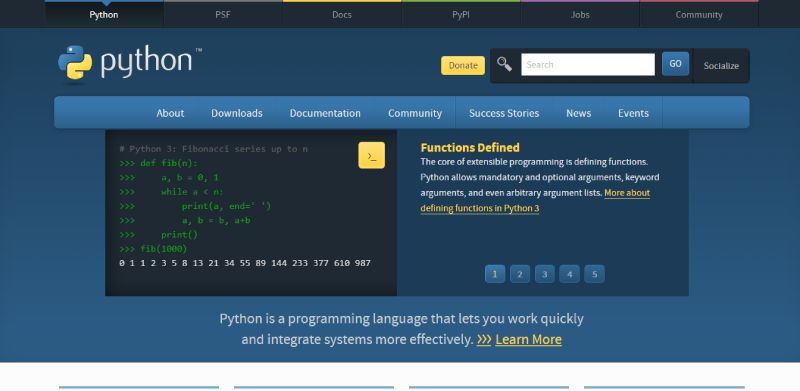
Python’s like the Swiss Army knife of programming—versatile and friendly. The code reads almost like English, which knocks out that steep learning cliff. It’s a jack-of-all-trades, master of… actually, quite a lot: from web apps to AI. Python slithers in everywhere, making things work like magic.
Best Features
- Easy-to-read syntax
- Massive library support
- Strong in data science and ML
What we like about it:
Python’s data science prowess is legendary. Its ability to turn complex datasets into insights with libraries like Pandas and SciPy? That’s pure gold.
JavaScript
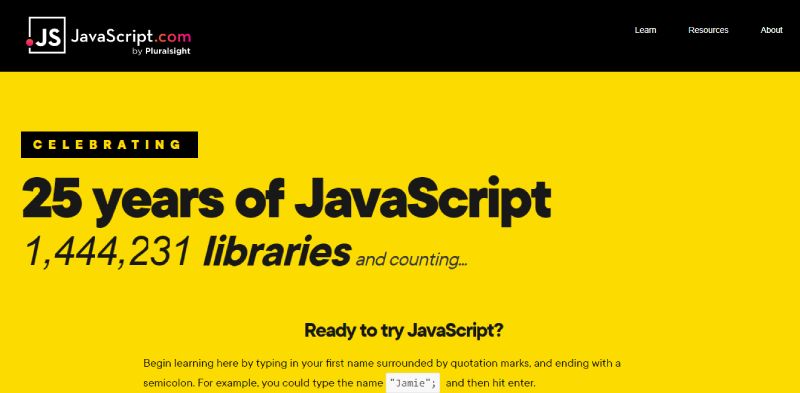
Running the web’s show from behind the curtains, JavaScript turns static pages into interactive stories. If the internet’s a stage, JavaScript’s the director. With Node.js in its entourage, it’s not just front-end flash, it’s back-end substance as well.
Best Features
- Universal browser support
- Event-driven, non-blocking I/O model
- Vibrant community and ecosystem
What we like about it:
The non-stop evolution. From humble beginnings to now powering up server-side with Node.js, JavaScript’s versatility is unmatched.
Golang

Ever wished for a language that’s as fast as C, but you don’t need a Ph.D. to write? Meet Golang, or just Go. Google’s brainchild specializes in making concurrency (doing many things at once) a piece of cake. Simplicity and performance are Go’s middle names.
Best Features
- Exceptional at concurrent tasks
- Blazing-fast execution
- Static typing with a dynamic feel
What we like about it:
Its speed is mind-blowing. Go compiles directly to machine code, making it a hare in a field full of tortoises.
Rust
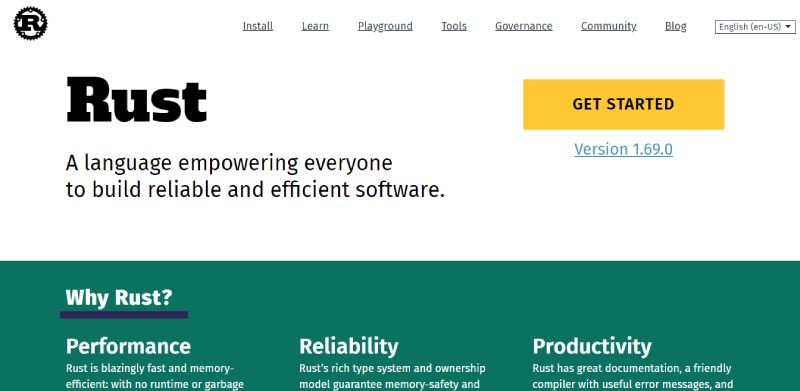
Safety first, Rust insists, while it juggles performance and reliability. It’s the armored knight ensuring your code’s security against memory leaks and bugs. If building solid, safe systems is your game, Rust’s your reliable sidekick. It’s got your back.
Best Features
- Memory safety without garbage collection
- Zero-cost abstractions
- Fearless concurrency
What we like about it:
Memory safety. Rust gives you power without fear—no more sleepless nights worrying about sneaky memory bugs.
Lua
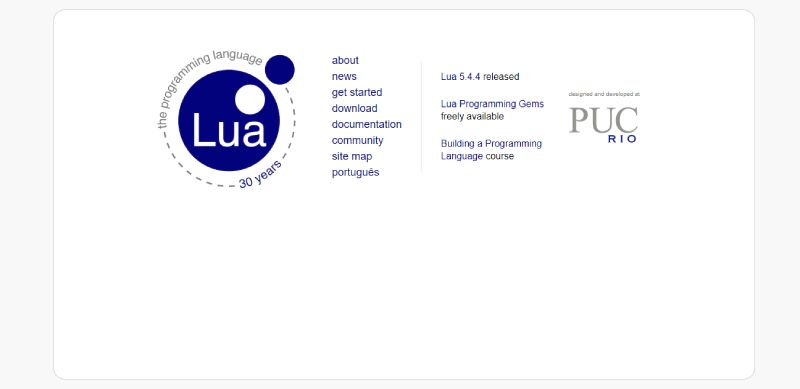
Lua’s that cool breeze of simplicity in the complex world of coding. Its embeddable nature means Lua plays nice with other languages, slipping into game engines or web servers discreetly. Light, fast, and flexible—Lua’s like the acrobat of programming.
Best Features
- Lightweight and embeddable
- Fast execution for a scripting language
- Easy-to-learn syntax
What we like about it:
Embeddability. Lua can sneak into any application and give it scripting superpowers.
Swift
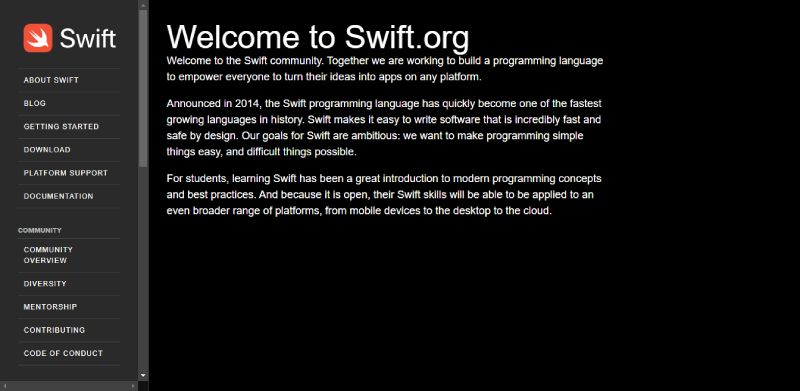
Ever peeked inside an iPhone app? Chances are, Swift’s the maestro orchestrating the pixels you see. Apple’s prodigy language, Swift, is all about writing code that’s robust and… well, swift. For the iOS kingdom, Swift reigns supreme.
Best Features
- Designed for clarity and safety
- Fast and efficient
- Full-stack potential with Vapor framework
What we like about it:
Swift’s efficiency with Apple’s ecosystem. The integration is seamless, like matching puzzle pieces.
Kotlin
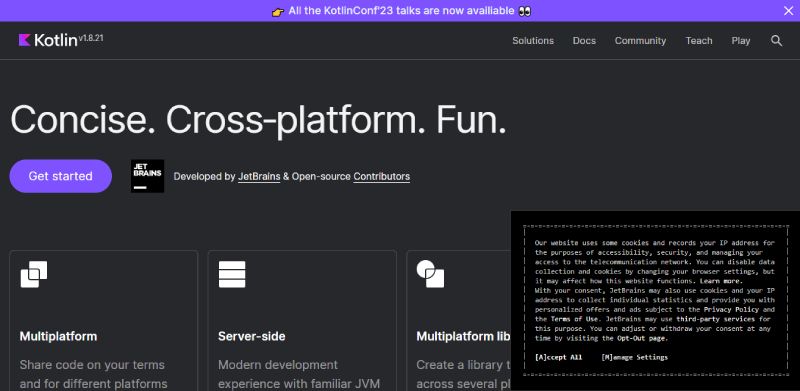
Android app development can feel like herding cats—until Kotlin steps in. Kotlin keeps the peace by being pragmatic and concise. It’s like Java without the old-school kinks. And it interops with Java too, so you can have your cake and eat it!
Best Features
- Fully interoperable with Java
- Concise and expressive language
- Safety features to avoid common programming mistakes
What we like about it:
Interoperability with Java. Kotlin is that friend who gets along with everyone, making it easy to blend into existing projects.
Scala
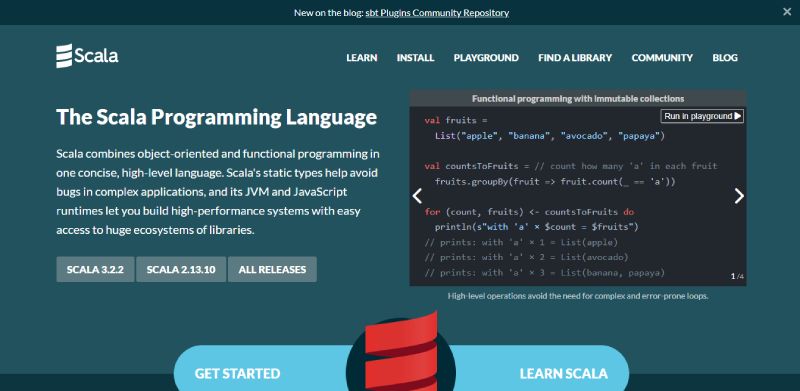
Scala is all about fusion cuisine—it mixes object-oriented and functional programming into one delicious dish. Java’s JVM hosts the party, and Scala adds the modern twist. It scales, too, from tiny scripts to colossal systems without breaking a sweat.
Best Features
- Hybrid functional and OOP paradigms
- Seamless Java ecosystem integration
- Powerful for scalable applications
What we like about it:
The blend of paradigms. With Scala, you’re a mad scientist, mixing the best of functional and object-oriented worlds.
TypeScript
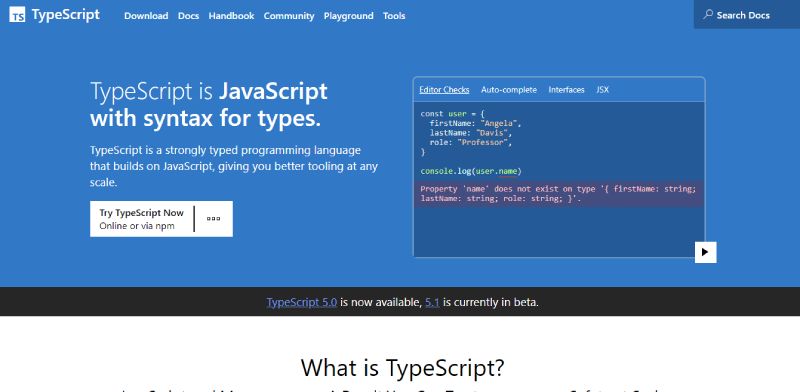
Imagine JavaScript decided to straighten its tie and put on glasses. That’s TypeScript, ensuring types are checked, and developers sleep soundly. Microsoft backs it, so you know it’s got some muscle. It’s the meticulous librarian organizing the JavaScript party.
Best Features
- Static typing in JavaScript’s playground
- Powerful developer tools and integration
- Predictable code that’s easier to debug
What we like about it:
The static typing system. TypeScript ensures your variables are who they say they are—no identity crises here.
Dart

Ever dreamt of one language to rule them all—web, mobile, desktop? Dart might just be your answer. Google’s Dart flies fast and hits the bullseye, especially with its superhero sidekick, Flutter, for sleek UI. Netflix, are you listening? Binge-watching is about to get smoother.
Best Features
- Multi-platform development (web, mobile, desktop)
- Paired with the Flutter framework for beautiful UI
- Optimized for building user interfaces
What we like about it:
Flutter compatibility for UI. Create a visual experience users will want to touch, swipe, and tap all day.
C#

Step into Microsoft’s realm, and C# (pronounced ‘see sharp’) the stalwart guardian, awaits. It’s the engine powering millions of Windows apps. With power and precision, C# is like the orchestra conductor, ensuring every line of code plays in harmony.
Best Features
- Strong typing and great memory management
- Extensive .NET library support
- Versatile across applications
What we like about it:
Strong language features within the .NET framework. It’s like having an army of tools at your disposal, ready for any development battle.
Julia
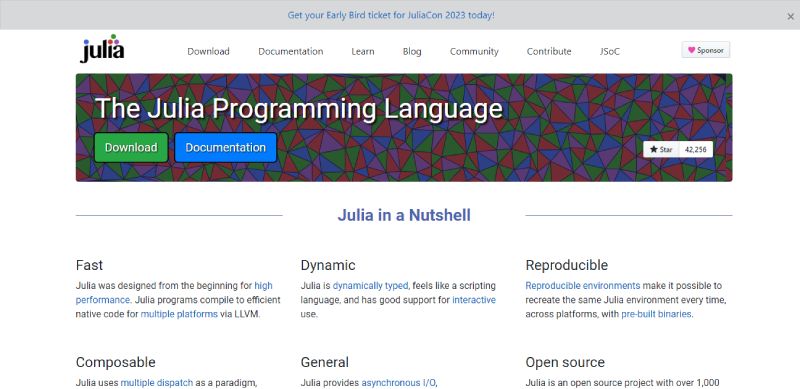
Julia whispers sweet nothings to number crunchers and data scientists. One language that’s both easy to write and lightning fast to run—oh, it’s like hitting two birds with one super-smart stone. Julia bridges the gap, making high-performance computing accessible.
Best Features
- Designed for high-performance numerical analysis
- Easy to learn for those familiar with Python
- Growing ecosystem for data science
What we like about it:
Its raw speed for data-driven tasks. Julia makes big data bend the knee, analyzing numbers in the blink of an eye.
Haskell
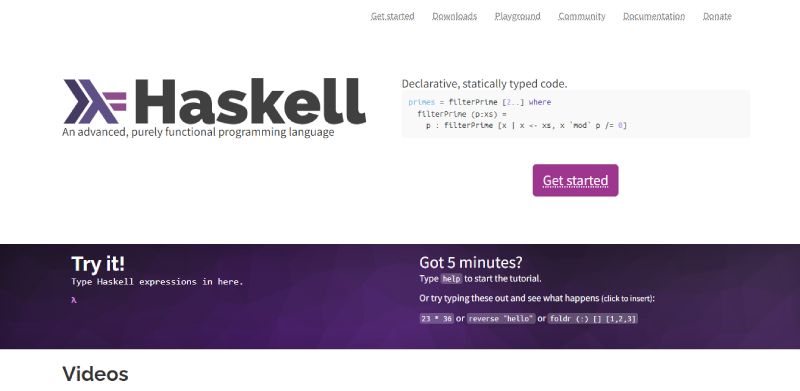
Haskell is that philosopher king of programming languages—pure, functional, and magnificently abstract. It’s not just about writing code; with Haskell, you’re crafting mathematical poetry. It’s strict and might challenge your brain, but big brain plays lead to great rewards.
Best Features
- Pure functional programming language
- Lazy evaluation
- Strong static type system
What we like about it:
Lazy evaluation. Haskell doesn’t bother doing work it doesn’t need to, like the smart kid who knows all the test answers in advance.
F#

F# is where dot-net developers go to dip their toes into functional programming without leaving the comfort of home. Bringing power and clarity to the table, F# shows that functional programming can be approachable and, dare we say it, fun.
Best Features
- Mix of functional, object-oriented, and imperative programming
- .NET platform integration
- Concise and expressive code
What we like about it:
The mix of paradigms. F# doesn’t force you to choose sides between functional and imperative. You can have it all.
Clojure
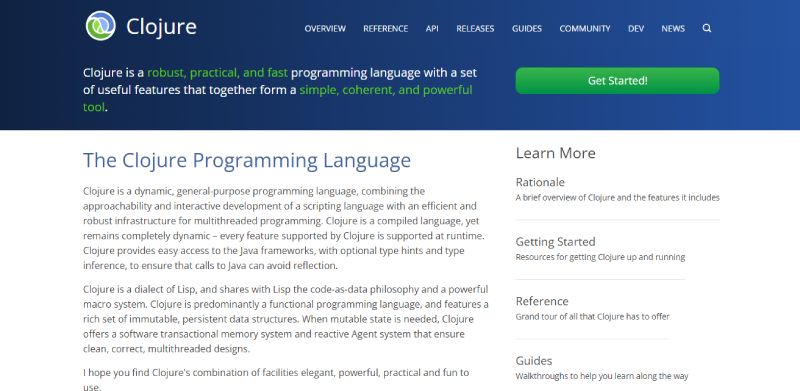
Pull a seat at the cool kids’ table with Clojure. It’s dynamic, robust, and loves to hang out on top of Java’s Virtual Machine. For the coders looking to enter the functional realm while carrying a bag full of Java tricks, Clojure greets you warmly.
Best Features
- Functional programming with LISP roots
- JVM interoperability
- Emphasis on immutability
What we like about it:
Its strong emphasis on immutability. Clojure treats your data like museum artifacts; precious and unchanging.
Crystal

Crystal sparkles with Ruby-like elegance and C-like performance. It compiles to native code, so your apps zip along. Crystal keeps the coding cozy yet cranks out the speed. It’s relatively new to the block, but oh boy, does it shine.
Best Features
- Ruby-inspired syntax for ease of use
- Statically typed with type inference
- Native binary compilation
What we like about it:
Crystal’s tightrope walk between high-level ease and low-level efficiency. Best of both worlds, right?
R

Statisticians, scientists, and data dabblers, unites under R’s banner. It’s the lingua franca of statistical analysis, turning data into insights with a script and a plot. Datasets may be complex, but R aims to handle them with grace and finesse.
Best Features
- Comprehensive for statistical analysis
- Powerful packages for data manipulation
- Strong graphic capabilities for data visualization
What we like about it:
Graphic capabilities. With R, your data doesn’t just talk; it sings, dances, and paints pretty pictures.
Groovy
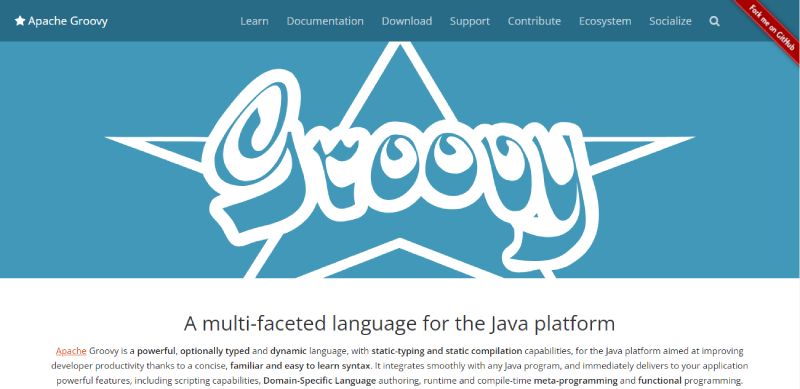
Get groovy with Groovy, the scripting langue that slides right alongside Java. Easy and powerful, Groovy is for those spontaneous coding sessions when you wish to avoid Java’s rigidity. It’s like Java decided to loosen up and throw a pool party.
Best Features
- Dynamic language with Java compatibility
- Simplifies writing and testing Java code
- Support for domain-specific languages
What we like about it:
Its dynamic nature. Groovy shakes up Java’s structured world, injecting spontaneity and flexibility into coding.
Nim
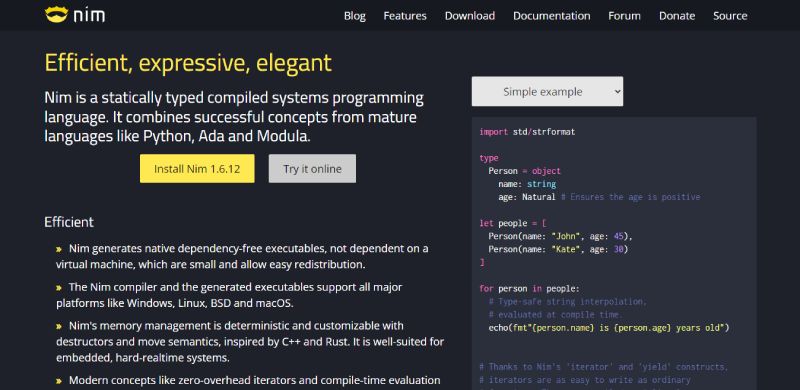
In the realm of programming, Nim is the new kid on the block, packing a fresh approach to syntax and performance. Its Python-ese elegance hides C-powered guts. Nim’s got the brains for sophisticated algorithms and lightning reflexes for runtime.
Best Features
- Python-like syntax for readability
- Compiles to C, C++, or JavaScript
- Efficient and expressive template system
What we like about it:
Nim’s chameleon-like versatility. Whether it’s scripting, systems programming, or web development, Nim adapts and thrives.
FAQ on Ruby alternatives
Why do developers seek Ruby alternatives?
Sometimes, they hit a wall with performance issues, or they just crave something different. You know, languages like Node.js or Elixir can offer more concurrency support or a different take on efficiency. It’s all about the right tool for the job, and sometimes Ruby ain’t it.
What languages are considered the best alternatives to Ruby?
Ah, the best, right? Python and JavaScript for their simplicity and support. Folks also gravitate towards Java for its robustness. Can’t forget Go; speed’s the name of its game. Each has its place, like different spices in a web developer’s kitchen.
How do Ruby alternatives compare in terms of performance?
Straight talk—Ruby’s elegant but can lag behind in the speed race. Languages like Go and Java flex their muscles in performance benchmarks. It’s like choosing between a classic car and the latest electric vehicle—both have charm, but one zips around faster.
Are there more modern frameworks for Ruby alternatives?
You bet. Take Python with its Django. Super sleek for web development. Then there’s JavaScript with Express for the Node enthusiasts. Frameworks are like fashion—there’s always a new trend on the horizon.
How easy is it to switch from Ruby to another language?
Ease of switch? Depends on the craftsman. If you’re comfy with object-oriented concepts and MVC frameworks, it’s like swapping out your favorite jeans for another brand. You know the fit but gotta get used to the feel. Git familiar with the syntax, libraries, and you’re golden.
Is community support robust for Ruby alternatives?
Community’s critical, isn’t it? Languages like Python, JavaScript, and PHP boast bustling forums, Stack Overflow discussions, and countless GitHub repositories just like Ruby. Whether you’re a newbie or a seasoned pro, there’s a fellowship ready to embrace you.
Can Ruby gems be easily replaced in other languages?
Gems, they’re Ruby’s crown jewels. But peek into Python’s PyPI or Node.js with npm, and voilà—libraries galore! It’s like finding a new favorite hangout spot after your go-to café closes. Takes a bit to adjust, but hey, the coffee’s equally good.
How does the learning curve for Ruby alternatives measure up?
Riding the learning curve, are we? Python prides itself on being beginner-friendly. Then JavaScript—it’s the internet’s backbone; can’t go wrong learning it. Something like Go might take more legwork, though. But hey, ain’t learning a new language always a grand adventure?
What kind of projects are better suited for Ruby alternatives?
Consider this: High traffic, real-time apps – Node.js will handle ’em like a champ. System-heavy, enterprise stuff? Java’s enduring presence has your back. Python shines with its data science prowess. It’s all about picking the pony for the course.
Are Ruby alternatives better for beginners?
“Better” is subjective, but here’s the scoop: Python often gets the nod for ease of use. JavaScript? It’s everywhere, making it handy to learn. It boils down to where you’re headed. Choose the path that aligns with your goals, and let the journey begin.
Ending thoughts
So, you’ve surfed through the sea of Ruby alternatives, right? Drifted past the shores of Python, JavaScript, bounced over the waves with Go, and even did a little dance with Java.
Here’s the real talk: every language is like a unique beat on a vast soundboard. You tap Python for a smooth, jazzy vibe or hit up JavaScript when you crave that electronic pulse. Java brings in that rock-solid bass, and Go? It’s your lightning-fast drum solo.
After the grand tour, what’s crystal is this: There’s more than one paintbrush for the canvas of creation. Pick the one that vibes with what you’re crafting—be it a sleek app or a data-crunching bot. Just keep in mind that it’s the open-source spirit, passion for coding, and a dash of curiosity that’ll keep your code fresh and your projects turning heads. Let’s keep building. Keep exploring. Keep creating.
If you liked this article about Ruby alternatives, you should check out this article about Angular alternatives.
There are also similar articles discussing PHP alternatives, Redux alternatives, Express alternatives, and Spring alternatives.
And let’s not forget about articles on Flask alternatives, TypeScript alternatives, Laravel alternatives, and Python alternatives.
- C# in the Modern World: What is C# Used For? - May 2, 2024
- Creating Stunning Visual Effects with Apps Like Adobe After Effects - May 1, 2024
- Managing Multiple Websites from a Single Installation - May 1, 2024

